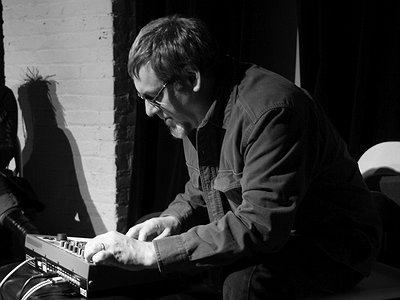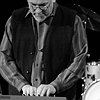Listening is also an active, rather than just a passive process. How do you see the role of the listener in the musical communication process?
My pieces are best experienced using a technique of “present-time listening.” This is something I’ve thought about and developed for myself over many years. Basically, while listening, one remembers the smallest amount of musical information that is comfortable. Do not try to recall anything in the past or to try to anticipate anything in the future. One just relaxes and take in what’s there in the moment.
Reaching audiences usually involves reaching out to the press and possibly working with a PR company. What's your perspective on the promo system? In which way do music journalism and PR companies change the way music is perceived by the public?
We might as well just say it: “Reaching audiences” is equivalent to guiding purchasing choices. People make those choices based on how they see themselves at present or who they’d like to see themselves becoming. My observation is that PR has its greatest success in shaping demand for the artist, and that demand itself has its own rewards. This is territory that I do not have much sympathy for, because it lures the artist into making marketing decisions that limit the possibilities for the work itself.
Additionally, “reaching audiences” favors common language over new experience, which may be the province of many, but not for me. Most musicians have training and talent in some areas that have potential to do just that, which is how they got into music in the first place. For me it just became necessary to part company with all of that in order to experience the freedom to find out what I could discover.
Although music journalism contributes to a PR image in a collateral sense, it has no special obligation to do so. The best thing the writer can do for the artist is to develop empathy for the work and express that. If the writer can’t do that, then the best thing he/she can do is to not talk about it. But that doesn’t happen when the writer feels charged with a different set of responsibilities.
Do you have a musical vision that you haven't been able to realise for technical or financial reasons – or an idea of what music itself could be beyond its current form?
Of course there are always going to be pieces that I can imagine that would benefit from better tech and bigger budgets. Naturally, the dynamics of funding are an important component of enabling an idea to become a finished project. But large and expensive projects are only one subset of all the things a person can do to make music. I never get into these technology races because I have no practical way to resolve the hypothetical problem. I believe that the experience of listening to the music itself should be as unique as possible, regardless of the operational scale of the work. And I still respect the notion that if you are a musician, you should be able to bash two rocks together and make a piece.



